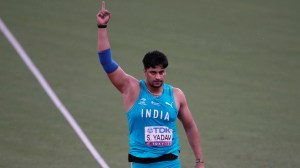HC scraps Hindujas’ Bofors chargesheet, blames it on the CBI
The Delhi High Court today quashed the chargesheet in the Bofors case against the Hinduja brothers claiming that the CBI had ‘‘abd...

The Delhi High Court today quashed the chargesheet in the Bofors case against the Hinduja brothers claiming that the CBI had ‘‘abdicated its duty’’ by not taking the consent of the Central Vigilance Commission.
The CBI will file a special leave petition in the Supreme Court challenging this order.
The latest development threatens to undo more than a decade of the trans-continental probe after the CBI registered its FIR on January 22, 1990 in the Bofors case.
The Hindujas’ plea, filed a month ago, asked for fresh prosecution to be filed keeping in mind the following: the protracted delay in the investigations, the findings of the Joint Parliamentary Committee, the Government’s recent orders legalising defence agents and the fact that payment of commission in defence deals sanctioned by the Government was neither illegal nor morally wrong.
Justice R S Sodhi based his decision on what experts think is a too ‘‘literal and simplistic’’ interpretation of the Supreme Court judgment in 1997 in the Jain Hawala case
In that case, the Supreme Court had ruled that ‘‘the CBI shall report to the CVC about cases taken up by it for investigation; progress of investigation; cases in which chargesheets are filed and their progress.’’
Solicitor General Harish Salve argued that the CVC’s superintendence is meant to deal with cases where the CBI has baulked at prosecuting the high and mighty. But, since the CBI was already prosecuting the Hinduja brothers before the trial court, it makes no sense for the high court to quash the chargesheet and suggest that the whole matter be referred to CVC at this stage.
But Sodhi did exactly that because he accepted the contention of Ram Jethmalani, counsel for the Hinduja brothers, that the CVC’s superintendence is meant ‘‘to prevent escape of the guilty and harassment of the innocent.’’
And went a step further ruling that the CBI has to take the CVC’s permission every time it wants to file a chargesheet. And because the CBI had not done so, it had ‘‘abdicated its duty’’ and vitiated the case.
Senior lawyer Anil Diwan, the amicus curie in the Jain hawala case, said that while he had not read today’s judgment, his understanding of superintendence was not that advice had to be sought on a case to case basis.
‘‘In any case,’’ Diwan said, ‘‘we do not have a CVC law as yet, we only have a resolution. The CBI is not supposed to seek sanction in every case. The CVC, however, can call for files on progress of investigations as and when they want.’’
Sodhi’s argument curiously implies that the police can very well file a chargesheet on their own but the CBI, which is the premier investigating agency of the country, can do so in no case without CVC’s clearance.
In fact, critics of today’s judgment argue that Sodhi’s ruling amounts to to giving the CVC a licence to interfere with the CBI’s investigation because it is supposed to report the progress of every stage of the case concerned.
Moreover, it could be abused as well. For, going by today’s judgment, most of the CBI cases are liable to be quashed due to the agency’s failure to keep the CVC informed about their progress at some stage or the other.
The verdict, quashing the trial court’s order taking cognisance of the chargesheet against the Hindujas, also flies in the face of Section 464 of the Criminal Procedure Code. This provision says that no trial court order shall be deemed invalid on the ground of ‘‘any error, omission or irregularity’’ unless the superior court feels that ‘‘a failure of justice has in fact been occasioned thereby.’’
Sodhi’s vedict does not explain what prejudice has been caused to the Hindujas by the CBI’s failure to take the CVC’s permission. Instead, he said that the CBI was free to file a fresh chargesheet ‘‘if so advised’’ after complying with the procedure of reporting to the CVC. Alternatively, ‘‘it would be open to the prosecution,’’ he said, ‘‘to consider the feasibility of carrying on with this case in view of the circumstances and in accordance with law.’’
Sodhi’s order also comes down hard on the CBI. ‘‘I cannot be unmindful of the fact,’’ he said, ‘‘that the CBI has been under a cloud, has been accused of being a political shield or a whip of the Government of the day.’’
Photos



- 01
- 02
- 03
- 04
- 05




























